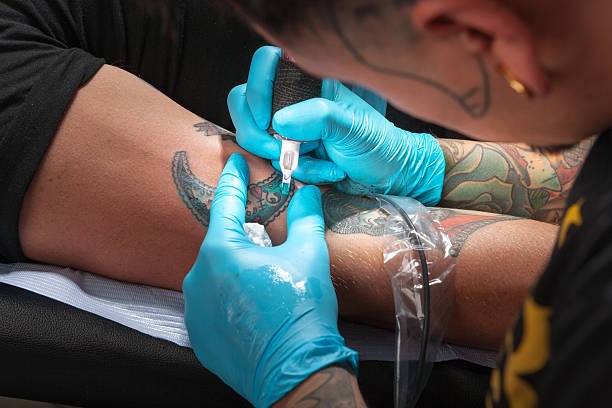Tattoo culture has evolved significantly over the years, transitioning from a form of rebellion to an accepted and celebrated mode of self-expression. The journey has been long, marked by societal prejudices and misconceptions. However, today’s tattoo culture is inclusive, embracing diversity and individuality in all its forms.
Historically, tattoos were associated with sailors, bikers, and outlaws – individuals who lived on society’s fringes. They were symbols of defiance against mainstream norms and values. However, as time progressed so did people’s perceptions towards tattoos. Today they are seen as a form of artistry or personal symbolism rather than a sign of deviance.
This shift in perception can be attributed to various factors such as the popularity of reality TV shows about tattooing like ‘Miami Ink’ or ‘Ink Master.’ These shows presented tattoo artists as skilled professionals creating beautiful works of art on human canvases which helped normalize tattoos in popular culture.
The evolution also owes much to the efforts made by tattoo enthusiasts themselves who have worked tirelessly to dispel stereotypes associated with tattoos. They’ve advocated for acceptance through education about the history and significance behind different kinds of tattoos from diverse cultures around the world.
The modern-day tattoo industry now stands for inclusivity more than ever before. It welcomes everyone regardless of their race, gender identity or body size – anyone can get a tattoo that represents their unique story or personality traits. This inclusiveness isn’t just limited to customers but extends to artists too; many women and people from marginalized communities have found success within this sphere.
Moreover, there’s been an increase in demand for customized designs that reflect personal experiences or beliefs which explore further emphasizes how varied this community is becoming. Tattoo studios are no longer intimidating spaces filled with gruff men covered head-to-toe in ink; instead they’re vibrant creative hubs where every individual feels comfortable expressing themselves through body art.
Furthermore, technological advancements have played a crucial role in making tattoo culture more inclusive. The development of new tools and techniques has allowed for greater precision and creativity in design execution, making it possible to cater to a wider range of aesthetic preferences.
The evolution of tattoo culture is a testament to society’s growing acceptance of individuality and self-expression. It’s inspiring to see how this art form has transformed from being stigmatized to celebrated, proving that beauty truly lies in the eyes of the beholder. The diversity within today’s tattoo community reflects our collective progress towards inclusivity – a trend we hope continues well into the future.

